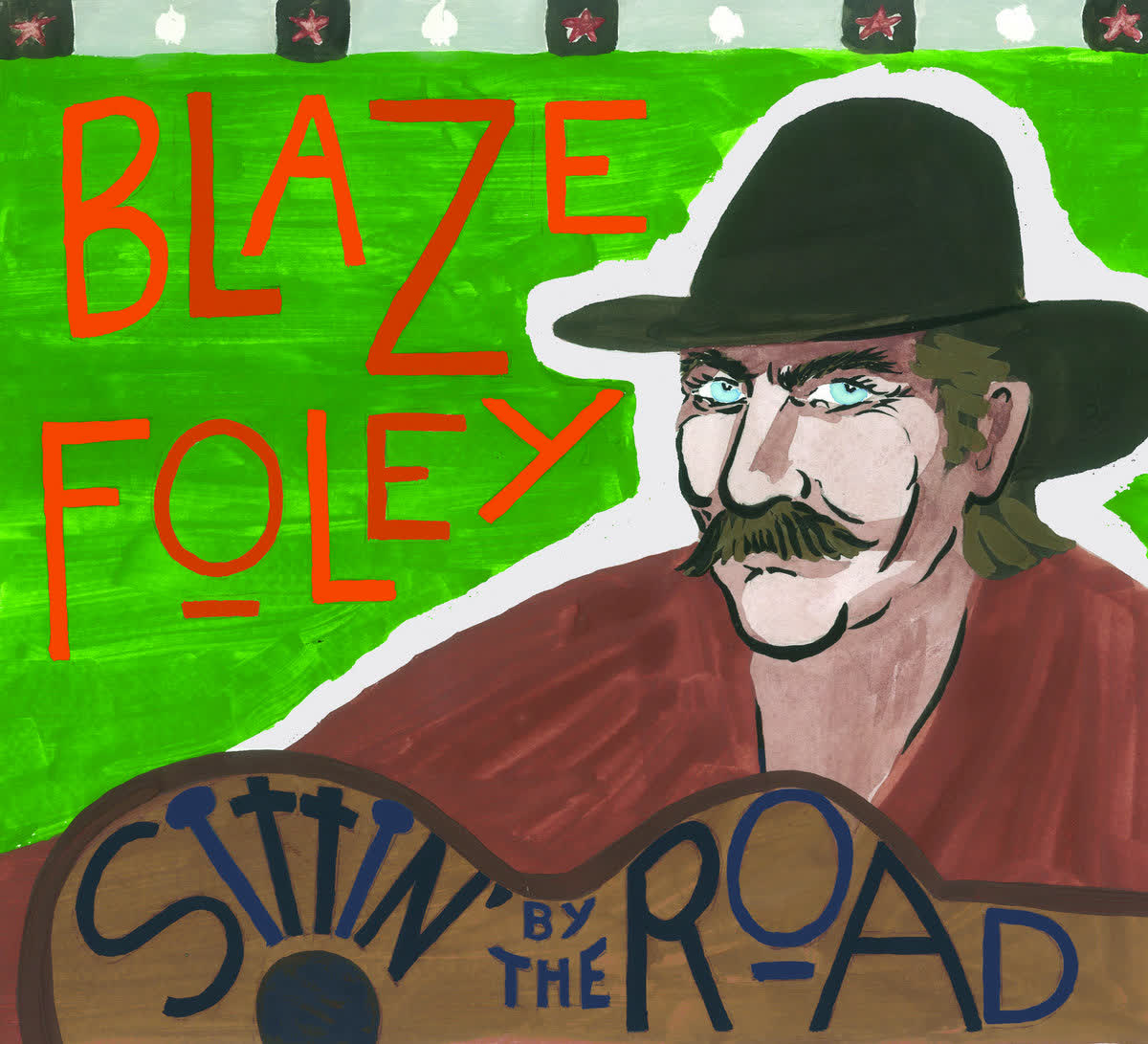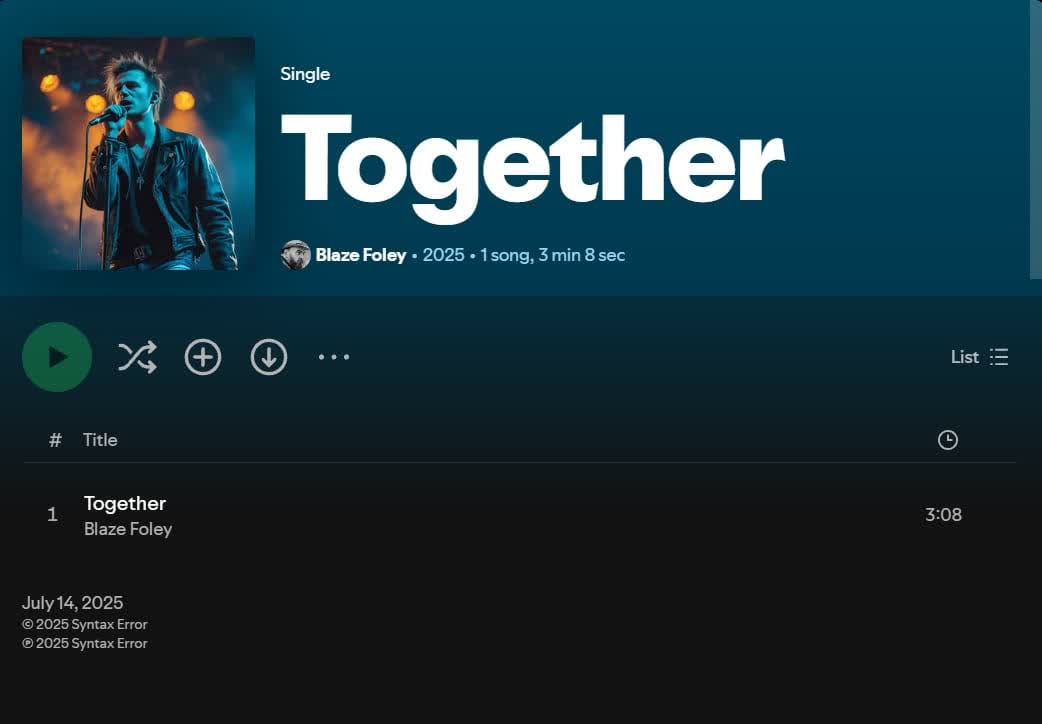A hot potato: Spotify has removed a song from the platform that was an AI-generated track claiming to be from a country singer who died in 1989. Fake songs allegedly by lesser-known and deceased musicians are another problem that streaming services are now having to deal with as a result of AI advancements.
AI-generated songs that are mass produced for streaming services and make money from bots have been an issue for some time now. But another AI headache for companies such as Spotify was highlighted over the weekend when a track called "Together" appeared on the verified official artist page of Blaze Foley.
Foley was shot and killed in 1989 during a dispute with a friend's son. This wasn't a recently discovered track that had been missing for 36 years; it was a fake that used AI-generated vocals and a cover image – which shows a man who looks nothing like Foley – also created by genAI. It even included credits and copyright information to make it appear more legitimate.
Fans of the singer and his label, Lost Art Records, informed Spotify of the track. Foley's catalog manager, Craig McDonald, told 404 Media that the song was not in the style of his other music and nowhere near the quality that listeners would expect.
McDonald suggested that Spotify should not allow any tracks to appear on artists' official pages without allowing the page owner to sign off on it first.
Foley's song isn't an isolated case. The same company whose copyright mark appears on Tomorrow's page was also found on another AI-generated fake. This one was for an AI song called "Happened To You," which claimed to be the work of Grammy-winning country singer Guy Clarke, who died in 2016. It also features an AI-generated piece of cover art featuring a person who bears no resemblance to Clarke.
A third song called "With You" that claims to be from Dan Berk also featured the copyright mark. It was uploaded at the same time as the others and included an AI-generated image of someone who doesn't look like Berk.
Spotify said that it removed Blaze's song for violating its Deceptive Content policy. It has also contacted SoundOn, the distributor of the content, which is owned by TikTok. 404 Media writes that the company mostly exists to allow people to upload music directly to TikTok and earn royalties.
"The content in question violates Spotify's deceptive content policies, which prohibit impersonation intended to mislead, such as replicating another creator's name, image, or description, or posing as a person, brand, or organization in a deceptive manner," Spotify said in a statement.
"This is not allowed. We take action against licensors and distributors who fail to police for this kind of fraud and those who commit repeated or egregious violations can and have been permanently removed from Spotify."
Spotify never said how the tracks appeared on the official artist pages in the first place.
AI-generated tracks are proving just as problematic when people use bots to fraudulently stream them, making money in the process. One man was accused of conning music services out of $12 million last year by uploading hundreds of thousands of AI tracks and using an army of over 1,000 bots to "listen" to the music.

